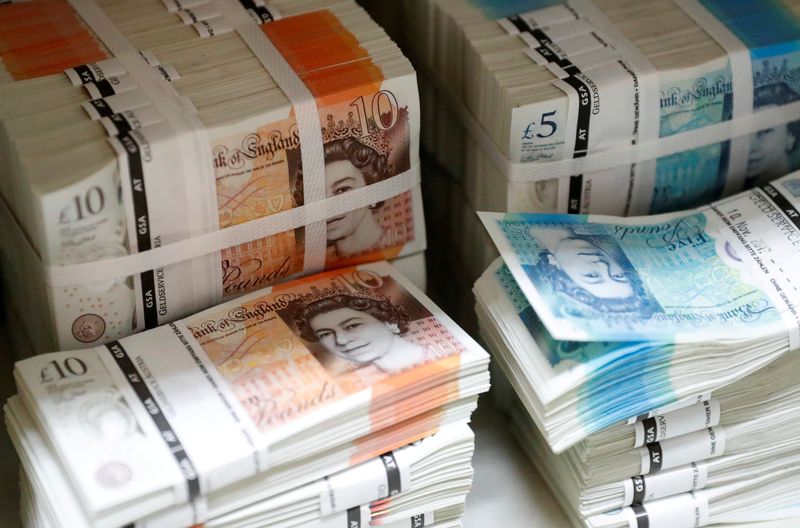(Reuters) - Sterling rose against the euro on Thursday after a brief fall when the European Central Bank announced it would end asset purchases earlier then expected.
Meanwhile, it fell versus the dollar after easing oil prices and unsuccessful talks between Ukraine's and Russia's foreign ministers failed to dampen demand for safe-haven currencies.
The ECB moved ahead with its exit from stimulus, adding that bond buys in the third quarter will be "data-dependent" while it could still revise its schedule if the inflation outlook changes.
Sterling rose 0.3% against the euro to 83.71 pence by 1528 GMT on Thursday, after briefly falling to its lowest level since February 10 at 84.33 pence.
It hit its highest since June 2016 at 82.035 on March 7.
"The fact that the ECB is going to discontinue its net asset purchases does show this willingness to still try and take more baby steps to keep a lid on inflation rather than moving in immediately like the Federal Reserve and the Bank of England," Susannah Streeter, senior analyst at Hargreaves Lansdown (LON:HRGV), said.
Money markets have been increasing their bets on the ECB's monetary policy tightening in the last three sessions after scaling them back sharply right after the Russian invasion of Ukraine on Feb. 24. [IRPR]
They are currently pricing in around 40 basis points (bps) of ECB rate hikes before year-end, while they forecast the Bank of England's rate hikes to be worth around 150 bps in 2022.
Analysts said the euro zone's higher exposure to the Ukraine conflict compared to the UK has supported the pound recently.
The pound fell 0.4% to $1.3136, within striking distance of its lowest level since November 2020 of $1.3083 it hit on Tuesday.

The war in Ukraine and the ECB policy meeting have overshadowed UK public borrowing issues.
British finance minister Rishi Sunak must decide whether to borrow heavily again or let public sector workers and households suffer a significant income hit due to the recent surge in inflation, a think tank said.